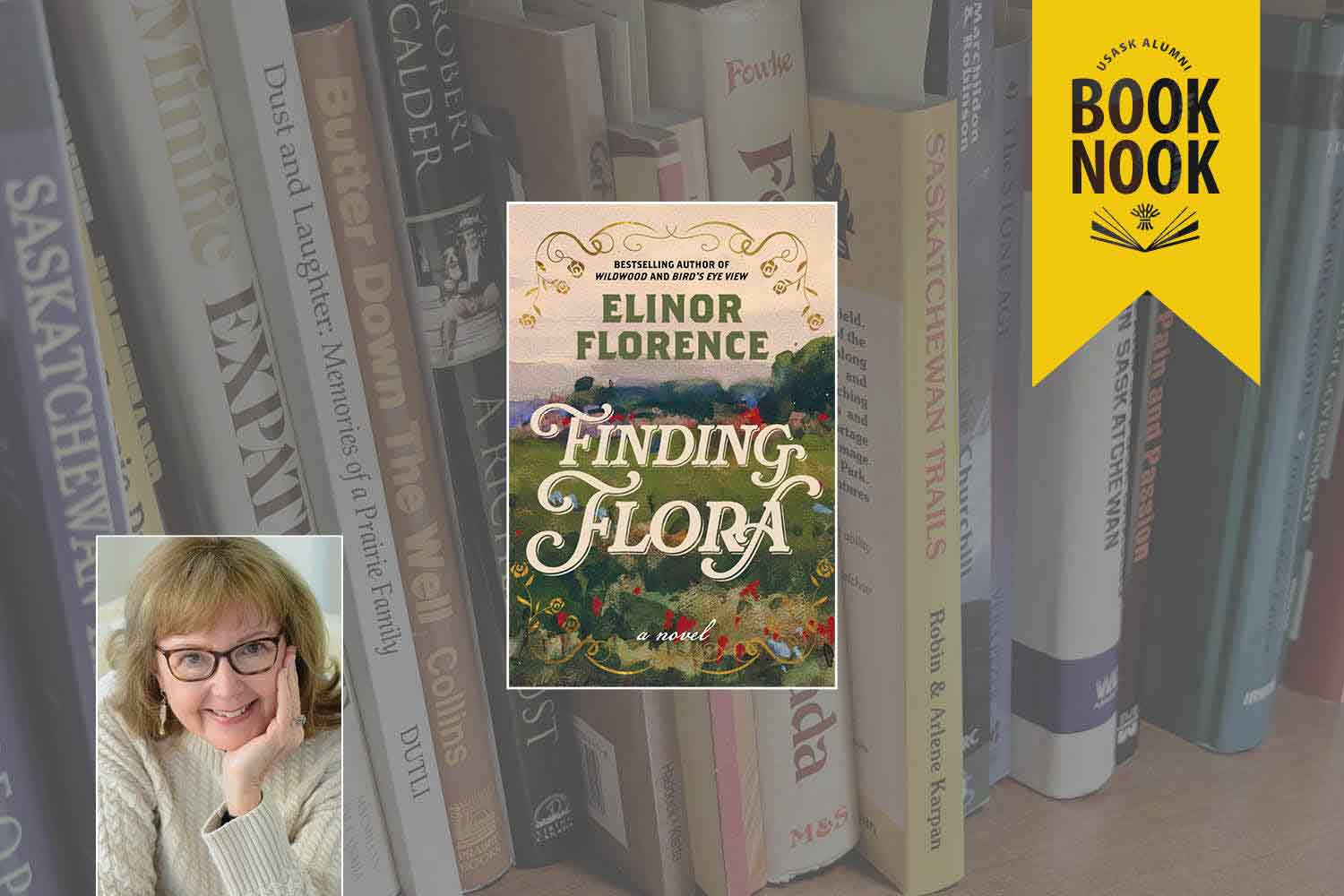
Alumni Book Nook: Elinor Florence (BA’71)
Elinor Florence, a best-selling Canadian author who lives in British Columbia, has written a new historical fiction novel
University of Saskatchewan (USask) graduate Elinor Florence (BA’71) is passionate about the past, and her interest in learning more about bygone eras has inspired her to write several fact-based historical novels about strong women.
The best-selling Canadian author has written a new book of historical fiction, Finding Flora, which was released by Simon & Schuster Canada on April 1, 2025. It centres on protagonist Flora Craigie, who leaves her abusive husband and finds a way to claim a homestead on the Alberta prairie as a single woman.
Florence decided to write the book after reading about the many settlers who came to Western Canada in the early 1900s.
“While reading about the flood of newcomers to Western Canada in the early 1900s, I was shocked to discover that the Canadian government never allowed single women to claim a free homestead,” Florence wrote on her website. “This was in contrast to the United States, where single women were homesteading by the thousands.”
Florence, a member of the Métis Nation of British Columbia who lives in Invermere, B.C., grew up on a Saskatchewan farm and earned a Bachelor of Arts degree in English at USask’s College of Arts and Science in 1971. She then earned a graduate degree in journalism at Carleton University in Ottawa, Ont., which led to a career as a journalist for daily newspapers across all four Western Canadian provinces. She also wrote for Reader's Digest for eight years and published her own community newspaper before turning her attention to writing fiction.
Florence’s first novel, Bird’s Eye View, was a national bestseller, while her second, Wildwood, was included on a Kobo list titled “100 of the most popular Canadian books of all time.” Finding Flora has also been a success, instantly becoming a No. 1 bestseller in Canadian fiction.
The Green&White recently asked Florence about her new work of historical fiction and why she would recommend the novel to USask alumni.
What is the focus of your new book, Finding Flora?
Scottish newcomer Flora Craigie jumps from a moving train in 1905 to escape her abusive husband. Desperate to disappear, she claims a homestead on the beautiful but wild Alberta prairie, determined to create a new life for herself. She is astonished to find that her nearest neighbours are also female: a Welsh widow with three children; two American women raising chickens; and a Métis woman who trains wild horses.
While battling both the brutal environment and the local cynicism toward female farmers, the five women struggle to find common ground. But when their homes are threatened with expropriation by a hostile government, they join forces to “fire the heather”— a Scottish term meaning to raise a ruckus. To complicate matters, there are signs that Flora’s violent husband is still hunting for her. And as the competition for free land along the new Canadian Pacific Railway line heats up, an unscrupulous land agent threatens not only Flora’s livelihood but her very existence.
What inspired you to write this book?
My Scottish homesteading and Indigenous ancestors inspired me to delve into Western Canadian history.
Did your education at USask play a role in researching and/or writing this book?
My English degree definitely laid the foundation for a long career writing and editing both fiction and non-fiction.
Why would you recommend your book to USask alumni?
This well-researched work of historical fiction will appeal to everyone who knows and loves the prairies.
What are five adjectives that you would use to describe your book?
Adventurous, educational, entertaining, romantic, and inspiring.
Is there anything else that you would like to add?
This novel serves as a powerful reminder that women’s rights were hard fought and hard won by those intrepid early female settlers who formed the bedrock of both the family and the farm.


